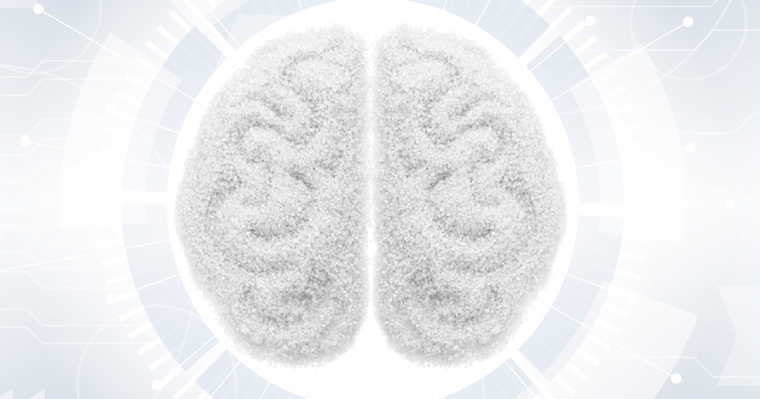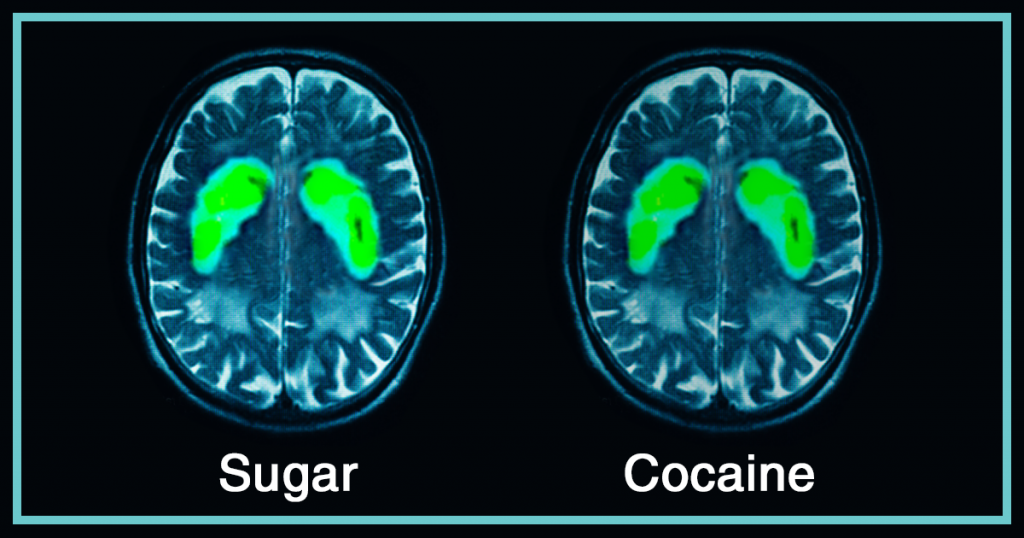
Sugar and Cocaine: The Impact on the Brain’s Dopamine Pathways
July 26, 2021Sugar and Cocaine: Sugar continues to be in the news for all its adverse effects on the body and the brain. For many, sugar is a reward substance, a treat for good behavior, an escape from negative stressors, and a final exclamation point after a great meal. However, even though many crave those tiny crystals, are we really addicted to them? Further, can it be as strong of an addiction and realistically be compared to cocaine?
In the medical and mental health professions, the word addiction represents the change in the brain's chemistry that triggers the urge to repeatedly consume a substance or do an activity despite adverse outcomes or harm.
Dopamine is the neurotransmitter released after these behaviors occur and triggers the individual's 'reward system,' causing them a pleasure-like "high" feeling. This excess release of dopamine is then sought after by increasing the amounts or opportunities to use the substance (sugar or cocaine). If the described cycle of use continues, it could lead toward a possible substance use disorder or complete addiction.
This is why you can eat one or two cookies the first time you reach for them, but then you have to go back for five or six more to get the same feeling. Added to these urges to eat sweets is the ease of accessing sugary treats, considering they are legal and very much socially acceptable. This creates a scenario that the individual must show personal restraint to limit the intake. For many, that restraint can be difficult, if not impossible, to do.
Where Sugar Is Found
Sugar is found naturally in honey and fruit. However, it is also added to ketchup, orange juice, soda, canned fruit, soups, and other favorites. It is disguised under alternative words such as glucose, corn syrup, brown sugar, dextrose, maltose, sucrose, and many others.
Several research findings have concluded that sugar can not only substitute for addictive drugs, like cocaine, but can even be more rewarding and attractive (Ahmed, Guillem, & Vandaele, 2013; Lenoir, Serre, Cantin, & Ahmed, 2007). When you eat sugar, your blood sugar spikes, insulin is released, and your blood sugar drops. If you do not have diabetes and need additional medications to ensure that you produce enough insulin. The body, however, sees this as an emergency state and goes into reactive mode by increasing the cravings for more. These parallels are similar to how drugs affect the body, brain, and cravings that keep the addiction cycle alive.

Am I An Addict?
Below are some questions to identify if, in fact, you could be physically, mentally, or emotionally addicted to sugar:
- Feeling sluggish or tired throughout the day.
- You think of sweets as a reward or a treat for good behavior.
- You feel guilty after eating sweets.
- You eat sweets even when you are not hungry.
- You get moody if you do not eat them or after you do eat them.
- One is never enough
- You will lie about needing them, minimize the amount eaten, or sneak to get more.
- You cannot control the need, want, or amount you are eating.
If you answered 'yes' to at least four of these statements, chances are you could be a sugar addict. Now what?
Breaking The Cycle: Sugar and Cocaine
So what can you do if you feel you are addicted to sugar? Abstinence is always the first choice but often the most difficult to do. The more you reduce and abstain from eating sugary products, the less your body will send you cravings for more.
The conflict comes in for those who use food as a coping mechanism to get through stressful situations or fulfill emotional needs. The act of seeking and receiving a 'treat' presents a behavioral calming effect while the body has increased receptors igniting the reward center. Thus, understanding the 'why' you are seeking sweets will guide you to the 'what' is causing it and how you can address the situation.
What You Can Do
The immediate thing to do is get all access to sweets out of your house and away from you. It will not stop you from stopping to get more, but it will make it less accessible and inconvenient to get more. Other options:
- Drink water regularly. Thirst pangs and hunger/craving pangs are similar. So go for water (every time) first.
- Eat fresh fruit or sugar-free jell with Cool Whip to knock the edge off of wanting sugar.
- Eat more protein and fewer carbohydrates, so you stay full longer.
- Get a minimum of eight hours of uninterrupted sleep a day.
- Reward yourself with 'non-food rewards' [I.e., spa day, clothes, tools, fishing gear, etc.]
- Go sugar-free for your drinks, snacks, sauces, dressings, and other foods you eat regularly.
- Go for a walk, to the gym, visit a friend, reignite a hobby or leave the immediate area where the trigger is happening.
- IDENTIFY- emotionally what you are trying to soothe and solve that [life] issue.
Did someone hurt your feelings? Let you down? Ignore you? Disrespect you? Forget you? Make you feel a particular negative emotion? Or, were you reminded of a painful unhealed event, experience, or abuse that you have buried?
Behaviorally, sweets are an emotional signal that you are seeking nurturing and comfort. This could be from someone you never got it from [parent, ex-spouse, friend, or mentor] or via a painful event or verbal lashing that has stayed with you for years. Or internal dialog you are "repeating to yourself at that moment."
Think about what is going through your mind, what negative self-talk was stirred up. What were you thinking in that moment that created a fear or caused you to feel "less than"? THAT is truly what needs to be addressed. Sugar is just the outward response to an internal dilemma within the emotional state of needing comfort.
Sugar and Cocaine Summary
The next time you are seeking sugar or have already consumed it and are now feeling bad about it, ask yourself, "what or from whom am I seeking nurturing and comfort from and I am not or did not get it?" Be truthful and brutally honest with yourself, and the "why" will instantly appear so you can address the 'life issue' and find a solution. Sugar is not doing anything wrong – it is doing precisely what you want it to do---make yourself 'artificially' feel better.

 | ABOUT THE AUTHOR Dr. Debra Taylor, Ph.D., M.S. is founder of "Weight, WHAT? Food Addictions Center" working with surgical and non-surgical weight loss clients for pre and post care and long term support. She is a national and international motivational speaker and trainer for addictions, obesity, finding purpose and living your best life. Read more articles by Dr. Taylor! |



